|
By Vidas Pinkevicius (get free updates of new posts here) Do you plan your daily activities around your organ practice? Even though you might have a different profession, does playing this instrument is high on your priority list, maybe high enough to influence some of your choices? It seems like this is the case with Arnoldas Leleika, the member of our Unda Maris studio who studies chemistry at Vilnius University. Here's what he wrote: "This year was very special to me because I entered the university, met a lot of new people and expanded my cultural and artistic horizons. It's a little secret but before choosing Vilnius University, I went to Cultural Center's website and saw that they have an organ studio. Because I'm an amateur organist who used to play in his little town during church services, I thought that this studio would give me a lot and my choice to study at Vilnius University was in part based on my wish to participate in the Unda Maris organ studio. My dream has paid off. When I played during the graduation ceremony, it was like my recognition that I really can play the organ. This inspired me to play even better. And our final concert on Saturday showed that the people at the university are not only smart but also very talented. I want to thank Vidas and Ausra for leading us on this musical discovery path and giving a special chance to get better. I want to also thank Giedre. One day I was thinking that alone we can play quite well but when we join the forces together it seems like everything doubles and music starts to sound differently. I hope in the next year we can keep the level quite high and even more strive for perfection because only the sky is the limit. :)" I hope you will enjoy this video how Arnoldas is playing Gordon Young Prelude in the Classical Style. His dedication to the organ is amazing, even though his profession is entirely different. To Arnoldas and Giedre's credit I have to say they both will represent Unda Maris next September in the Freshmen Integration Week at the university where they will share their experiences of being a part of our community to the young people of various majors who are just beginning their studies there. Hopefully this will inspire a few more students to start playing the organ.
Comments
By Ausra Motuzaite-Pinkeviciene (get free updates of new posts here) Have you been in a situation when you've been swept away from music, from any artistic activity for a while and all around you were your colleagues from completely different field, your co-workers who couldn't fully understand you? Well, Giedre Juodzeviciute who studies math at Vilnius University found herself in this situation. Here's what she wrote after our Unda Maris concert last Saturday: "I'm very happy about this concert. For a few more days I could hear the sounds from the pieces that Mindaugas, Arnoldas and myself played. My family liked the concert very much, when they climbed to the organ balcony they were surprised by the size of the instrument. I can't believe how fast this year went by. How the organ changed my life? When I came to Vilnius, I lost all the chances to have a piano and to practice regularly. Little by little I started missing art so much because all around me was just math... But when I would to come to church to play, I could escape this, meet people who shared my interests and I also missed them. To not forget piano skills, finger technique, to feel a little anxiety when the tourists would be striding constantly, even to remember what does it mean to play a duet. All of this was an opportunity for me to grow further. I'm very grateful to Vidas and Ausra for their support, care and advice! Looking forward to the new season and I'm going to start searching for new music to play over the summer. :)" I hope you'll enjoy Giedre's performance of Hans Zimmer's Inception which incidentally she arranged for the organ herself directly from listening a video on YouTube. It was like a gigantic melodic dictation for her. If you're curious about the original, here it is too. So anyway, I thought of sharing this with you today because I feel that art does something to our souls and even to our bodies which nothing else can replace.
What is it? I can't really put it into words but it seems like we can only fully appreciate it's power over our lives when we've for some reason lost contact with it for a while.
By Ausra Motuzaite-Pinkeviciene (get free updates of new posts here)
Last Saturday our organ studio "Unda Maris" at Vilnius University played a joint concert at St John's church. One of the pieces on the program was J. Pachelbel's Chaccone in F Minor which was played by Mindaugas Dulkys, a chemistry student at the university. Mindaugas hopes to discover some new medicine which would cure some incurable illnesses in the future using his chemistry skills. For a long time he struggled to play this piece without stopping in public although when he practiced on his own it was fine. Last night he wrote a few words about his feelings during this concert which you may find inspiring: "This year for the first time in my life I've been playing a large-scale work which was written in the key with 4 accidentals. When I first started learning it, I felt scared because some variations are more difficult than others I was afraid I will not be able to master them. But during our concert I played the whole piece from the beginning until the end and I'm very happy about it and actually quite proud, although some mistakes were still audible. I'm very grateful to the leaders of our studio for showing me the right way in learning the piece, for their patience and encouragement which was so necessary during these critical moments. Thanks!" Vidas and I can only say we're extremely proud of Mindaugas' progress and hope he will not stop here. When was the first time when you played a difficult piece in public without stopping? Welcome to Secrets of Organ Playing Podcast #96!
Today's guest is Jay Farnes from San Diego, California who is a student of mine and he tries to improve his organ sight-reading abilities, especially sight-reading hymns, even though he is 70 years old. He got interested in the organ back in the 70’s and always had a love for jazz music. He got enamored with organs, especially the Hammond organ, after listening to jazz organists like Jimmy Smith and Johnny ‘Hammond’ Smith. It was exciting for him to hear some rock groups embrace and incorporate the Hammond organ in those days, like Keith Emerson and Rick Wakeman. He quickly became a huge fan of those people and that sound. Jay had played piano for some years, being taught in his youth by his mother, who was a pretty good pianist. He started playing saxophone early in school years and continued in that from Junior High through college. His favorite school groups were jazz ensembles. In the early 70’s, Jay joined a band and bought his first organ, a Hammond Model D, a huge monster of an organ. He played keyboards and woodwinds professionally in various groups for some fifteen years or so. Currently Jay has the privilege to play organ in his church services occasionally. In his church, ‘The Church of Jesus Christ of Latter-day Saints’, (more commonly known as Mormons), there are no paid positions, which would include clergy and organists. People are asked by ecclesiastical leaders to fulfill positions for various lengths of time. So in his congregation, there is an organist that has been asked or ‘called’ to that position for an indeterminate length of time. When he is not able to attend our services, he usually asks Jay to fill in. He enjoys playing hymn and chorale type music, and is working to increase his proficiency in those areas. Jay's largest challenge is sight-reading. He didn’t do a whole lot of that playing professionally, and he feels he's playing catch-up with that now. So in this conversation, Jay and I devise a 30 day hymn sight-reading challenge for him as well as other practical details for his organ playing future. Enjoy and share your comments below. And don't forget to help spread the word about the SOP Podcast by sharing it with your organist friends. Thanks for caring. Listen to the conversation By Vidas Pinkevicius (get free updates of new posts here)
The current system of music education worldwide is build upon the notion of recreating someone's compositions. It may be performance of music repertoire, writing down dictations, and even memorizing musical themes from pieces of the masters old and new. Do this often and long enough and you'll create an army of educated concert goers who appreciate good music. Well, maybe some performers too, if we're lucky. But who's gonna create creators? And I'm not buying the explanation that composition is only for professional composers. Creators create. That's what they do, regardless if they have the diploma for that or not. And actually humans are different from the animal kingdom primarily in this characteristic - we are capable of creating. It seems to me we're not focusing upon creating an environment and culture which rewards brave creators and leaders, people who care enough to say, "Here, I made this. What do you think?" In a world of tomorrow where human connection, creativity and innovation will be all we have left for us and all the good jobs will be taken over by the machines and artificial intelligence, this is not only the wise choice, it's the ONLY choice we'got. So, are you creating or are you consuming music? By Vidas Pinkevicius (get free updates of new posts here)
Yesterday my 8th graders had a written part of the ear training exam in school. Among other things, they had to write a one-voice and a two-voice dictation, each 8 measures long. Both were in F major. At the beginning I played treble A and the tonic chord of F major key. The students were supposed to discover the key from this A by themselves and write Bb next to the clef. All of my students got the key right but one. He wrote G major with F# next to the clef. So G major or F major? What's the difference? Here's the thing: In F major tonic chord the note A is the middle note of the chord (FAC) whereas in G major tonic chord A is a whole tone apart from either G or B which are the chordal notes in this GBD chord. Does it make sense? Treble A: GBD vs FAC? Try it on the piano and listen to the difference. If you can't get it right, play A and then ANY major or minor tonic chord and practice for a while. You will get better with time. Doesn't matter if you get it right on the first try. Doesn't matter if you have a perfect pitch or not. Perfect pitch is a result of our memory: the more were are exposed to this treble A, the more likely it is you can remember how treble A sounds. By Ausra Motuzaite-Pinkeviciene (get free updates of new posts here)
On Monday during our harmony lesson, I taught Victoria the concept of secondary dominants. It's a trick we use in harmony to visit closely related keys for a very short period of time. It's not a modulation where we end a musical idea in a new key with a cadence. It's much much shorter - just 2 or 3 foreign chords. Imagine C major key for a moment. Here is the tonic chord from bass up (CEG). Now maybe D6 chord (BDG) and back to tonic (CEG). Now play BDEG#. That's D43 chord of A minor. A minor is the 6th scale degree chord. So that's D43 of vi. Now resolve it to A minor chord (ACEA). So BDEG# is a secondary dominant chord in this case. Then you can come back to C major by playing ii65 (FCDA), Cadential T64 (GCEG) and D7 (GDFB) and Tonic (CCEC). Try to play the whole cadence on the keyboard: CCEG-BDDG-CCEG-BDEG#-ACEA-FCDA-GCEG-GDFB-CCEC. You see how colorful your harmony with this G# already is? Victoria thought so too. Would you like to know more of the things I taught Victoria recently? If so, today I'm glad to share with you my Harmony Review for Beginners 3. It's the material from my last 4 lessons with her (over 3.5 hours of audio training). I will teach you the 2nd scale degree 7th chord and its inversions (ii7, ii65, ii43, ii42 and their multiple resolutions) as well as harmonic analysis of "Ich ruf zu Dir, Herr Jesu Christ", BWV 639 by J.S. Bach. I'm including Vidas' PDF guidebook to mastering this piece with fingering and pedaling as a bonus. If you order until May 31, you'll get 50 % discount. Oh, I almost forgot to mention that this training is free for Total Organist students. Happy practicing! Let me know if you need help with anything or feel stuck. By Vidas Pinkevicius (get free updates of new posts here)
For the last few months Ausra and I have been working on writing fingering and pedaling to F Major Toccata and Fugue, BWV 540 by J.S. Bach. First we wrote on the score with a pencil and little by little started inserting fingering and pedaling using PDF editing app on our laptop. We prepared 9 pages this way. It's a very slow process. And that's when Kuba offered his help to complete the rest of the scores 15 pages in exchange for a chance to play it. We are glad to release this PDF score, if you want to master this fabulous piece (50 % discount is valid until May 31). Save tenths of hours of your time and add articulate legato touch naturally, almost without thinking. This training is free for Total Organist students. By Ausra Motuzaite-Pinkeviciene (get free updates of new posts here) Yesterday I was teaching my Harmony for 10th graders class and this one student struggled with passing and neighboring 64 chords. Then assignment was to harmonize a simple 8 measure melody in the soprano with 4 part harmony using root position, 1st inversion tonic, subdominant and the dominant chords as well as tonic and subdominant neighbor 64 chords and tonic and dominant passing 64 chords. I always joke that these 64 chords are the first thing they can use even being relatively inexperienced with harmony to make an impression of advanced and beautiful chord progressions. Enjoy the video I made about them. By Vidas Pinkevicius (get free updates of new posts here)
Today I recorded a video for David from Florida who asked my help in playing Handel's Largo. He is 71 years old and still trying to improve. Good for him! It's not too late. We never stop improving. Only when we stop living we can relax a bit. I noticed right away that he struggled with knowing what kind of fingers and pedals to use so I prepared a score for him with fingering and pedaling. Now he can progress much faster. Here are the rules I used if you want to do it for your own piece (created until 1800's): 1. For pedals, don't use heels. 2. For pedals primarily aim for alternate toes. 3. Do not cross your feet. Move them both together at the same time as one unit. 4. Same toes for long notes, extreme edges of the pedalboard and when the melody changes direction. 5. For hands, don't use finger substitution. 6. Use 2, 3, or 4 whenever possible. 7. Don't use finger glissandos. 8. The same fingers for the same intervals. Try this system when you're working on the early music piece. It helps you achieve singing articulate legato touch automatically, almost without thinking. If you need help with anything or feel stuck, let me know. |
DON'T MISS A THING! FREE UPDATES BY EMAIL.Thank you!You have successfully joined our subscriber list.  Photo by Edgaras Kurauskas Photo by Edgaras Kurauskas
Authors
Drs. Vidas Pinkevicius and Ausra Motuzaite-Pinkeviciene Organists of Vilnius University , creators of Secrets of Organ Playing. Our Hauptwerk Setup:
Categories
All
Archives
July 2024
|
This site participates in the Amazon, Thomann and other affiliate programs, the proceeds of which keep it free for anyone to read.
Copyright © 2011-2024 by Vidas Pinkevicius and Ausra Motuzaite-Pinkeviciene.
Terms of Service and Privacy Policy
Copyright © 2011-2024 by Vidas Pinkevicius and Ausra Motuzaite-Pinkeviciene.
Terms of Service and Privacy Policy

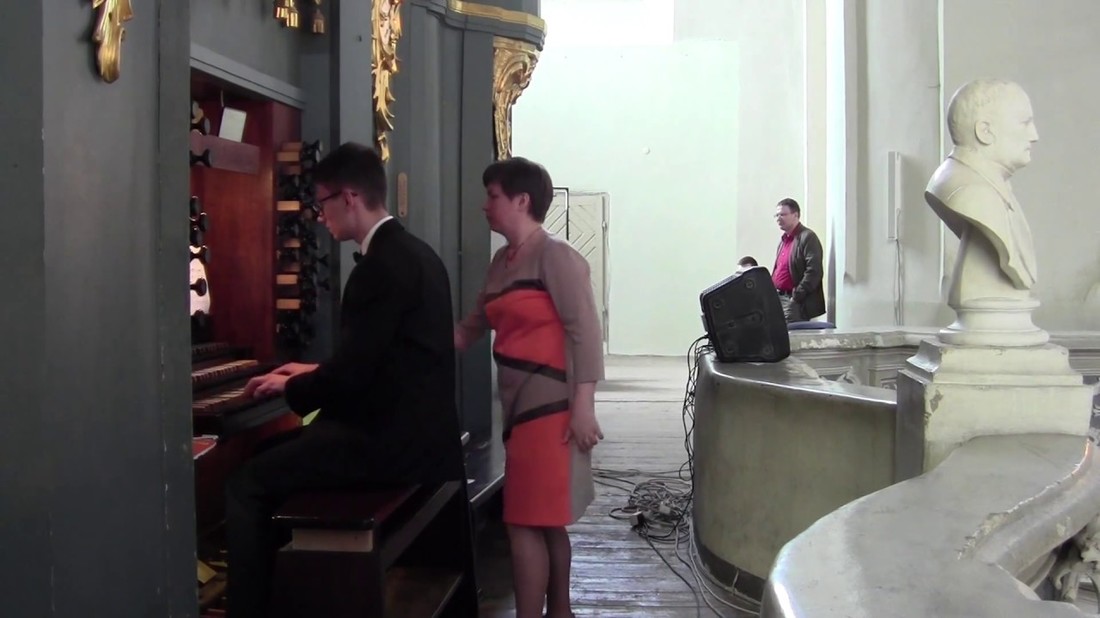
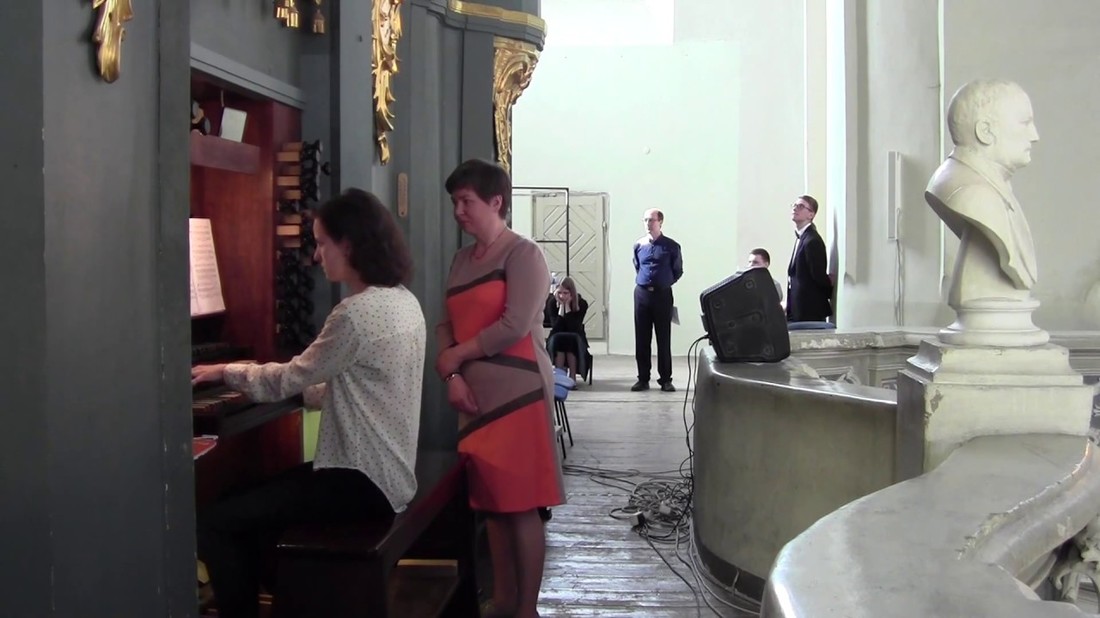
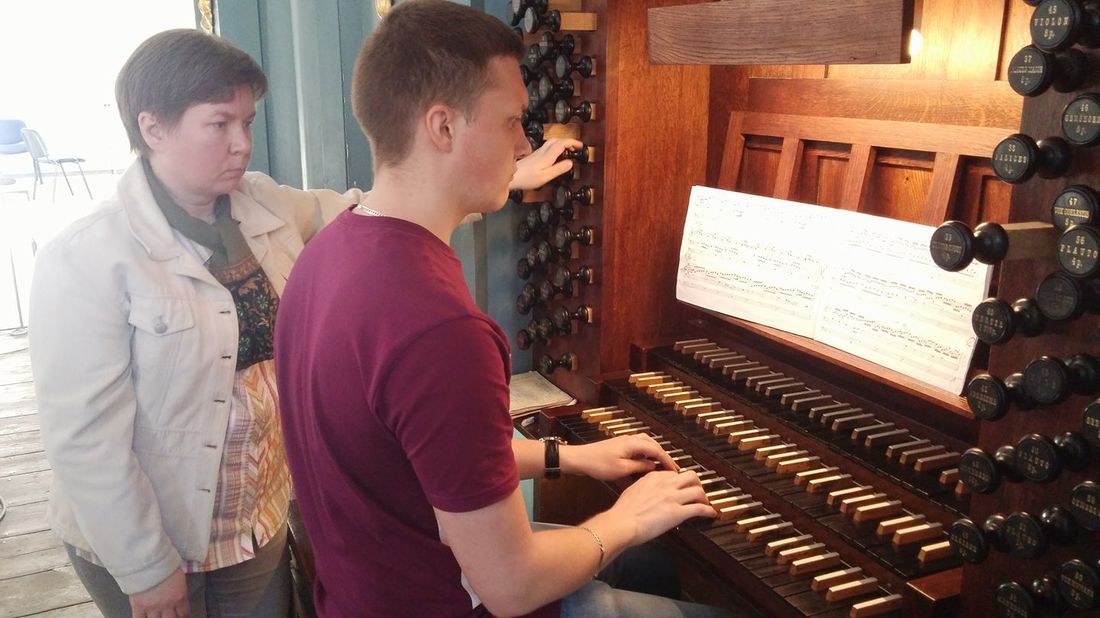
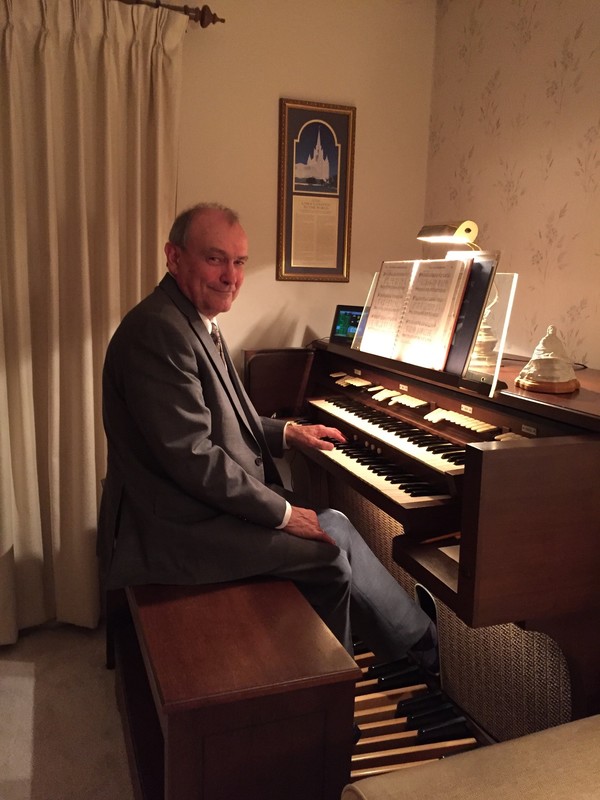
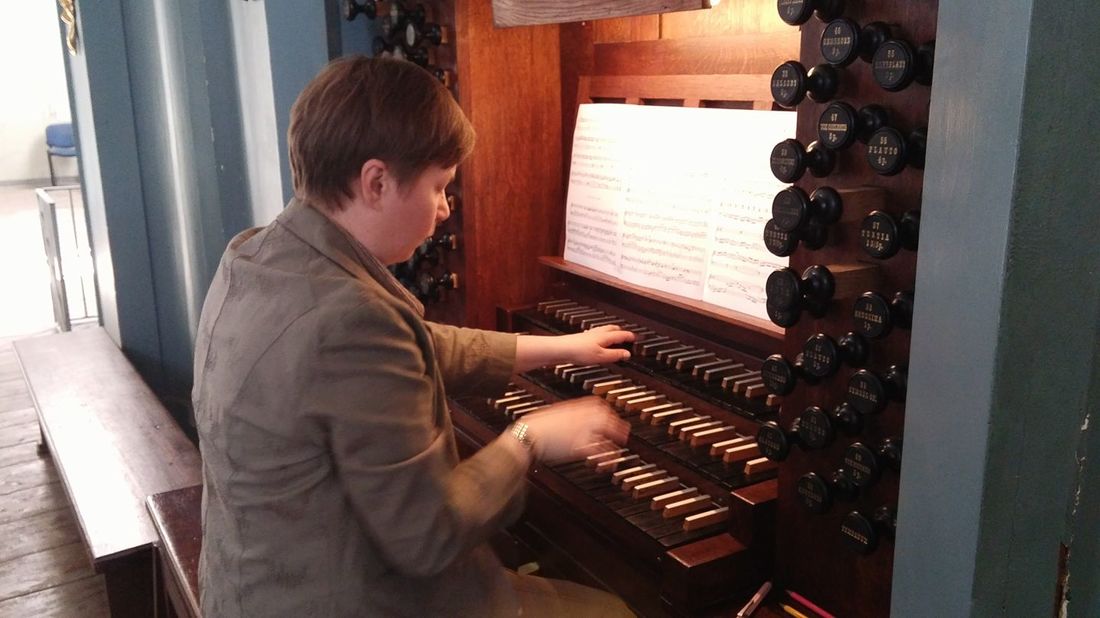
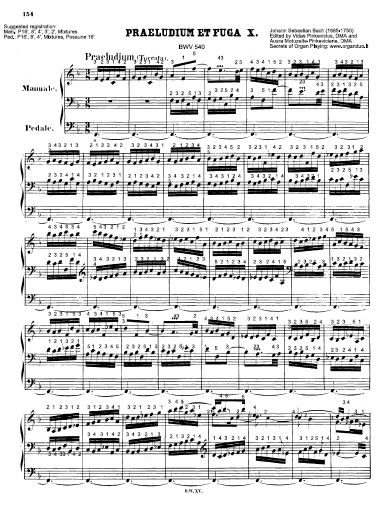



 RSS Feed
RSS Feed